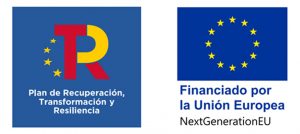GFRPort
Period: 12/2023 – 11/2026 (36 months)
Project manager AMADE: Cristina Barris cristina.barris@udg.edu , Marta Baena marta.baena@udg.edu
Contact: cristina.barris@udg.edu
Other AMADE people involved in project: Xavier Cahís Xavier.cahis@udg.edu
Grant agreement number: CPP2022-009555
Project technical coordinator: CEDEX
Partners: Rover Maritime, Vialobra, CEDEX

Funded by: » Agencia Estatal de Investigación” (AEI), “Ministerio de Ciencia e Innovación” (MCIN) in the frame “Plan de Recuperación, Transformación y Resiliencia” through a public-pivate collaboration, under reference CPP2022-009555


Reinforcement corrosion is usually the main cause of concrete deterioration in port structures. Considering that the first signs of corrosion in the reinforcements can appear after only 5 years of life of the structure, advancing and extending the knowledge of new technologies that can increase the service life of existing infrastructure and reduce the maintenance costs is essential for the development of a sustainable maritime infrastructure system.
The use of corrosion-resistant reinforcement, such as Glass-Fibre Reinforced Polymers (GFRPs) turns out to be a sustainable corrosion solution and a promising alternative to conventional reinforcing bars for concrete members. GFRP reinforcement is non-corrosive, lightweight, has high tensile strength, and offers high strength-to-weight-ratios. In this project, the GFRP reinforcement is proposed as a sustainable corrosion solution.
Nowadays, Spanish maritime construction companies and manufacturers/suppliers of GFRP bars are facing difficulties and challenges in their implementation and use. The main barriers include the insufficient long-term performance data of maritime structures made of concrete reinforced with GFRP; the need of better knowledge of the properties of GFRP bars; the lack of a design guideline for the use of RTHp Spanish rebars, the lack of a National regulatory framework and the fact that there are some aspects related to economic and environmental assessment that have not been studied in detail in maritime structures.
Two private companies, one of them, Rover Maritime (RVM), specialized in maritime works, and the other one, Vialobra, interested in improving knowledge of the RTHp GFRP bars commercialized by them, plus two public entities, Universitat de Girona through its research group AMADE (AMADE-UdG) and CEDEX, have come together to form a multidisciplinary consortium. The project is aimed at promoting the use of GFRP bars to replace steel as reinforcement material in those situations where durability is a concern.
The project expects to have an impact on reducing greenhouse gas emissions by increasing the resilience of port infrastructures, increasing the durability and therefore the life cycle of reinforced concrete structures. It is expected to take a step forward in the knowledge of the physical-mechanical behaviour of GFRP reinforcement. All the scientific and technological expertise acquired throughout the project, will be transferred to the appropriate regulatory agencies to contribute on the development and proposal of national regulations. An increased confidence in the structural safety of GFRP-reinforced concrete is foreseen. It is awaited to promote the national market for this type of concrete reinforcement, and this will have a direct effect on the sales and awarded tenders of the two companies involved in the project that will have the opportunity to increase their income statement thanks to the offer of this new solution.